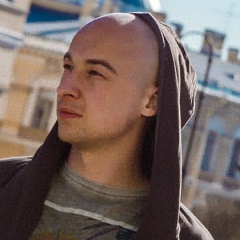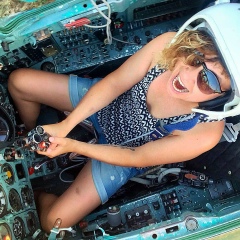Гуси
…Если вы когда-либо наблюдали за косяком гусей, летящим к югу на зимовку, вам, возможно, интересно будет узнать, что ученые объяснили, почему стая летит клином. В ходе исследования выяснилось, что каждая птица, взмахивая крыльями, обеспечивает подъем для птицы, находящейся непосредственно за ней. Благодаря такому построению вся стая увеличивает скорость полета, по меньшей мере, на 71% по сравнению со скоростью, которую может развить птица в отдельности. (Люди, согласованно двигающиеся в общем направлении, достигают своей цели быстрее и с меньшими затратами, потому, что они двигаются за счет друг друга).
Стоит одному гусю выпасть из общей стаи и попытаться лететь в одиночку, как он сразу же чувствует тяжесть и сопротивление. И он возвращается в стаю, чтобы воспользоваться подъемной силой, создаваемой впереди летящей птицей. (Если бы мы, люди, были так же разумны, как гуси, то всегда держались бы сообща). Когда вожак устает, он возвращается в конец косяка, и другой гусь встает во главе стаи. (Выполнять тяжелую работу по очереди гораздо легче).
Гуси в конце стаи кричат, поощряя тех, кто впереди не сбавлять скорость. (Что мы кричим, находясь позади лидеров?)
И, наконец, если гусь, заболев или получив ранение, выпадает из стаи, два других гуся тоже покидают стаю и следуют за ним, чтобы оказать ему помощь и поддержку. Они остаются с этим гусем до тех пор, пока он не поправится или не умрет, а затем отправляются в путь сами или с другой стаей догонять своих. (Если бы мы были так же разумны, как гуси, мы бы тоже поддерживали друг друга)…
Том Уорсэм
…Если вы когда-либо наблюдали за косяком гусей, летящим к югу на зимовку, вам, возможно, интересно будет узнать, что ученые объяснили, почему стая летит клином. В ходе исследования выяснилось, что каждая птица, взмахивая крыльями, обеспечивает подъем для птицы, находящейся непосредственно за ней. Благодаря такому построению вся стая увеличивает скорость полета, по меньшей мере, на 71% по сравнению со скоростью, которую может развить птица в отдельности. (Люди, согласованно двигающиеся в общем направлении, достигают своей цели быстрее и с меньшими затратами, потому, что они двигаются за счет друг друга).
Стоит одному гусю выпасть из общей стаи и попытаться лететь в одиночку, как он сразу же чувствует тяжесть и сопротивление. И он возвращается в стаю, чтобы воспользоваться подъемной силой, создаваемой впереди летящей птицей. (Если бы мы, люди, были так же разумны, как гуси, то всегда держались бы сообща). Когда вожак устает, он возвращается в конец косяка, и другой гусь встает во главе стаи. (Выполнять тяжелую работу по очереди гораздо легче).
Гуси в конце стаи кричат, поощряя тех, кто впереди не сбавлять скорость. (Что мы кричим, находясь позади лидеров?)
И, наконец, если гусь, заболев или получив ранение, выпадает из стаи, два других гуся тоже покидают стаю и следуют за ним, чтобы оказать ему помощь и поддержку. Они остаются с этим гусем до тех пор, пока он не поправится или не умрет, а затем отправляются в путь сами или с другой стаей догонять своих. (Если бы мы были так же разумны, как гуси, мы бы тоже поддерживали друг друга)…
Том Уорсэм
Geese
... If you've ever watched a school of geese flying south for the winter, you might be interested to know that the scientists explained why the flock flies in a wedge. In the course of the study, it was found that each bird, flapping its wings, provides a lift for the bird immediately behind it. Thanks to this construction, the whole flock increases the flight speed by at least 71% compared with the speed that a bird can develop individually. (People who move in a consistent direction in a general direction achieve their goal faster and at a lower cost, because they move at the expense of each other).
As soon as one goose falls out of the general flock and try to fly alone, he immediately feels heaviness and resistance. And he returns to the flock to take advantage of the lifting force created in front of the flying bird. (If we humans were as intelligent as geese, we would always be together). When the leader gets tired, he returns to the end of the joint, and another goose stands at the head of the pack. (Doing the hard work in turn is much easier).
Geese at the end of the pack scream, encouraging those ahead not to slow down. (What are we screaming behind the leaders?)
And finally, if a goose, falling ill or injured, drops out of the pack, the other two geese also leave the pack and follow him to give him help and support. They remain with this goose until it recovers or dies, and then go on their own or with another flock to catch up with their own. (If we were as intelligent as geese, we would also support each other) ...
Tom Worsham
... If you've ever watched a school of geese flying south for the winter, you might be interested to know that the scientists explained why the flock flies in a wedge. In the course of the study, it was found that each bird, flapping its wings, provides a lift for the bird immediately behind it. Thanks to this construction, the whole flock increases the flight speed by at least 71% compared with the speed that a bird can develop individually. (People who move in a consistent direction in a general direction achieve their goal faster and at a lower cost, because they move at the expense of each other).
As soon as one goose falls out of the general flock and try to fly alone, he immediately feels heaviness and resistance. And he returns to the flock to take advantage of the lifting force created in front of the flying bird. (If we humans were as intelligent as geese, we would always be together). When the leader gets tired, he returns to the end of the joint, and another goose stands at the head of the pack. (Doing the hard work in turn is much easier).
Geese at the end of the pack scream, encouraging those ahead not to slow down. (What are we screaming behind the leaders?)
And finally, if a goose, falling ill or injured, drops out of the pack, the other two geese also leave the pack and follow him to give him help and support. They remain with this goose until it recovers or dies, and then go on their own or with another flock to catch up with their own. (If we were as intelligent as geese, we would also support each other) ...
Tom Worsham
У записи 5 лайков,
1 репостов.
1 репостов.
Эту запись оставил(а) на своей стене Мария Коган


























